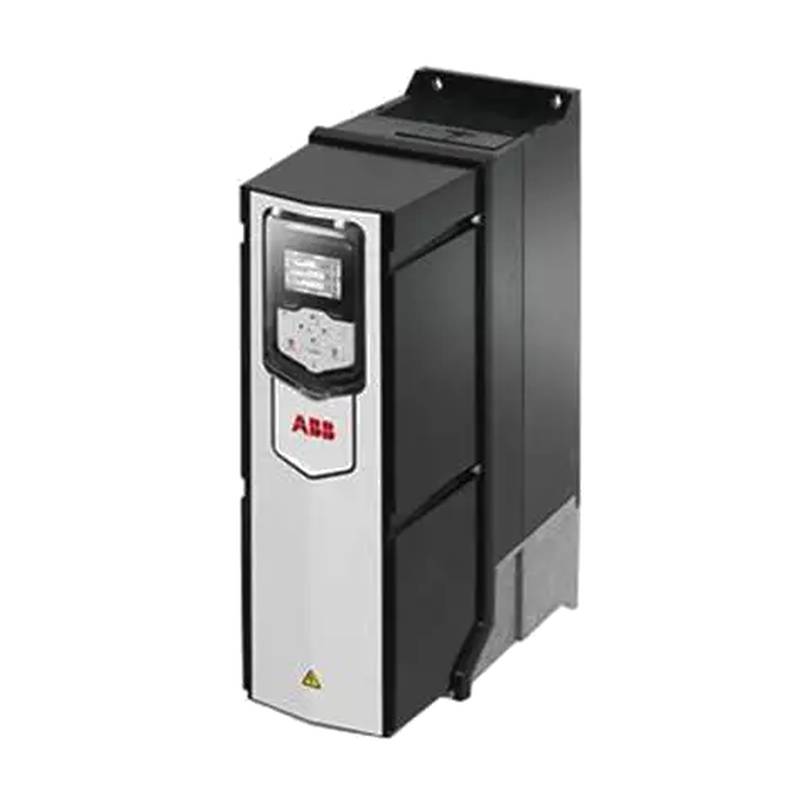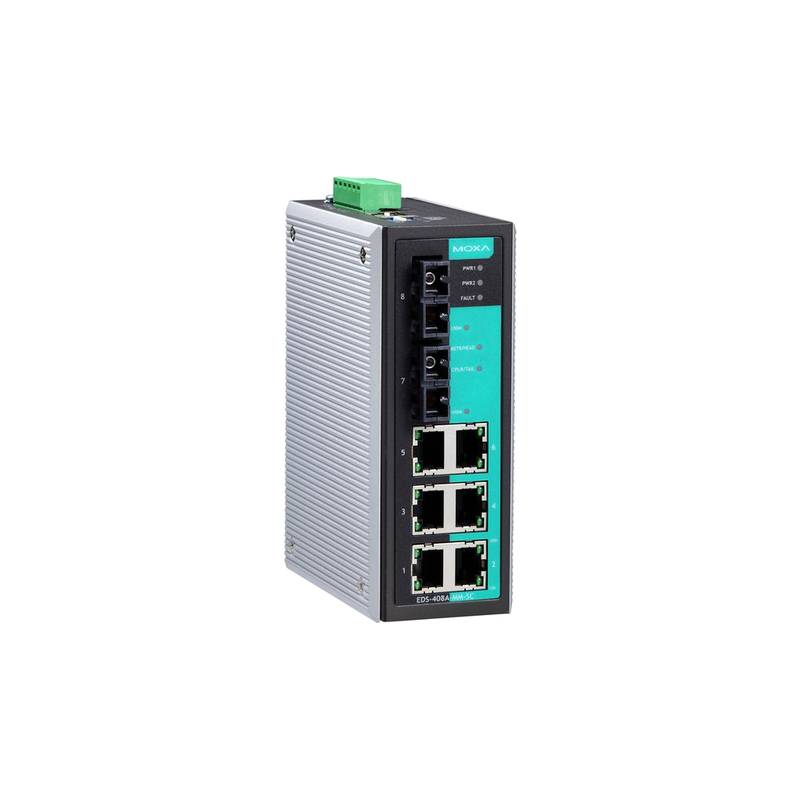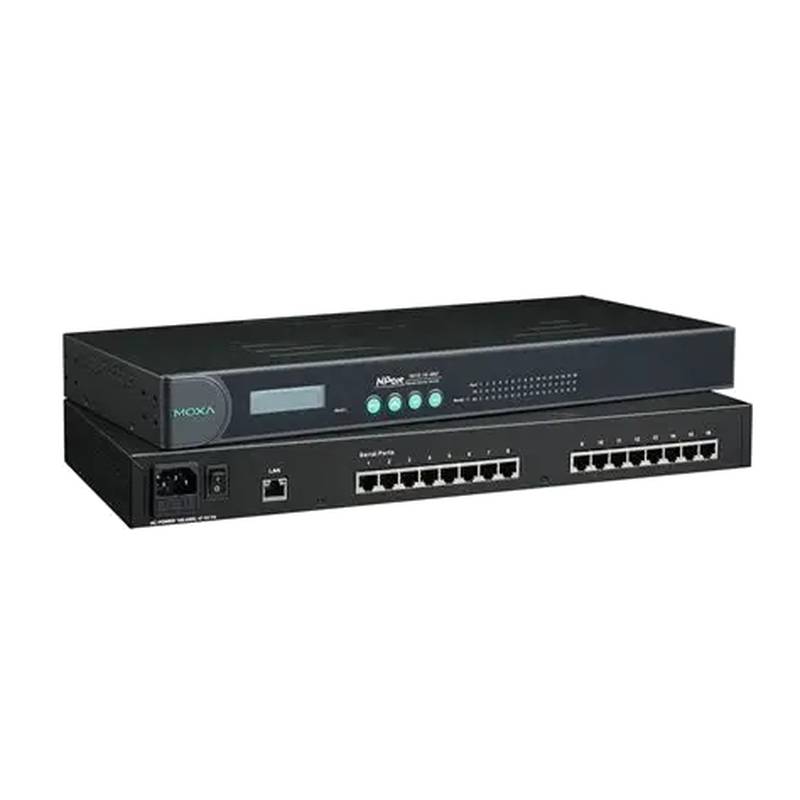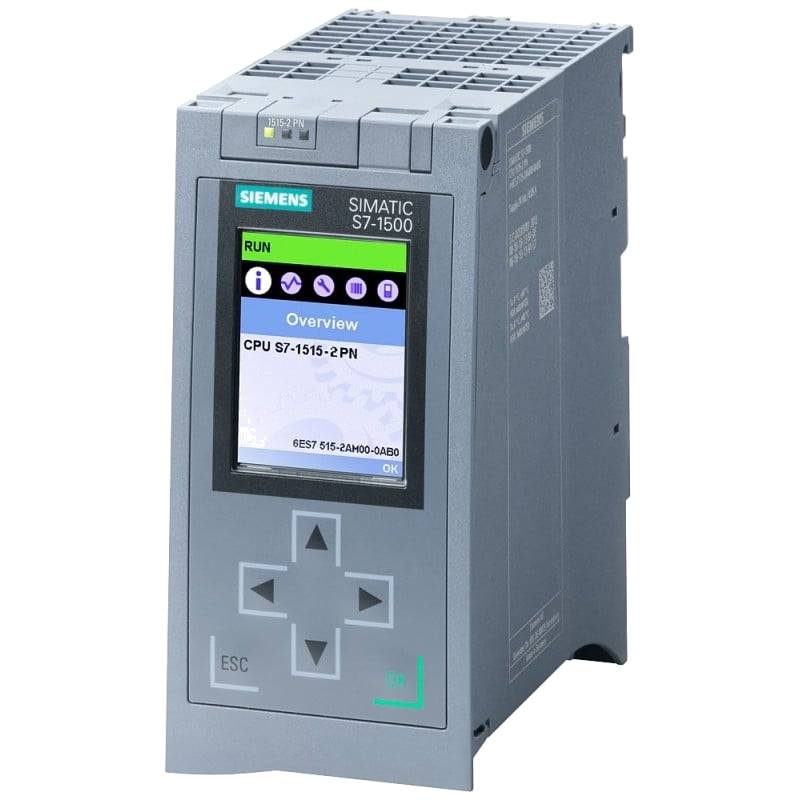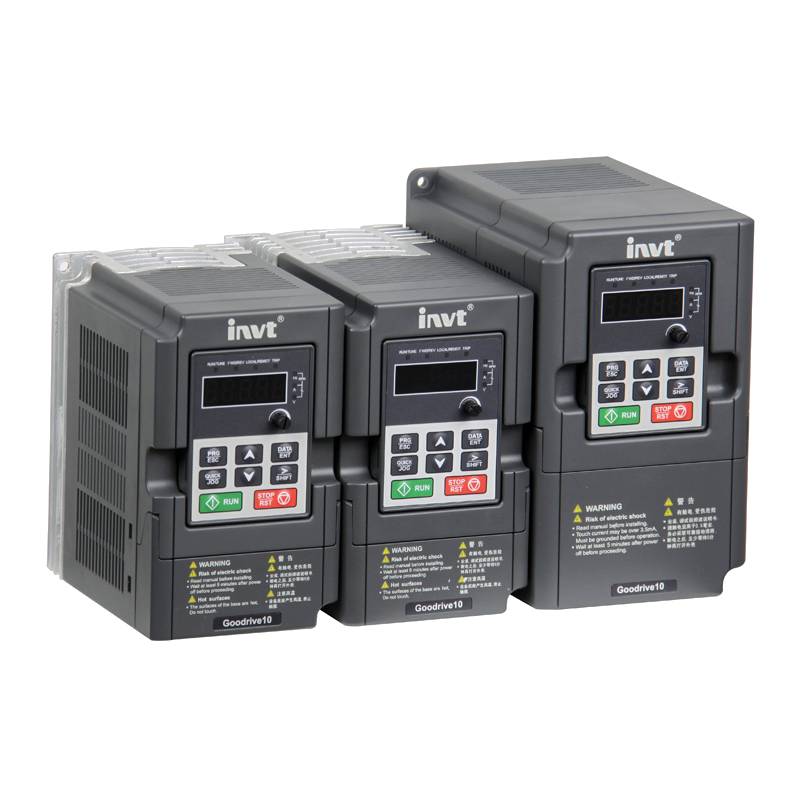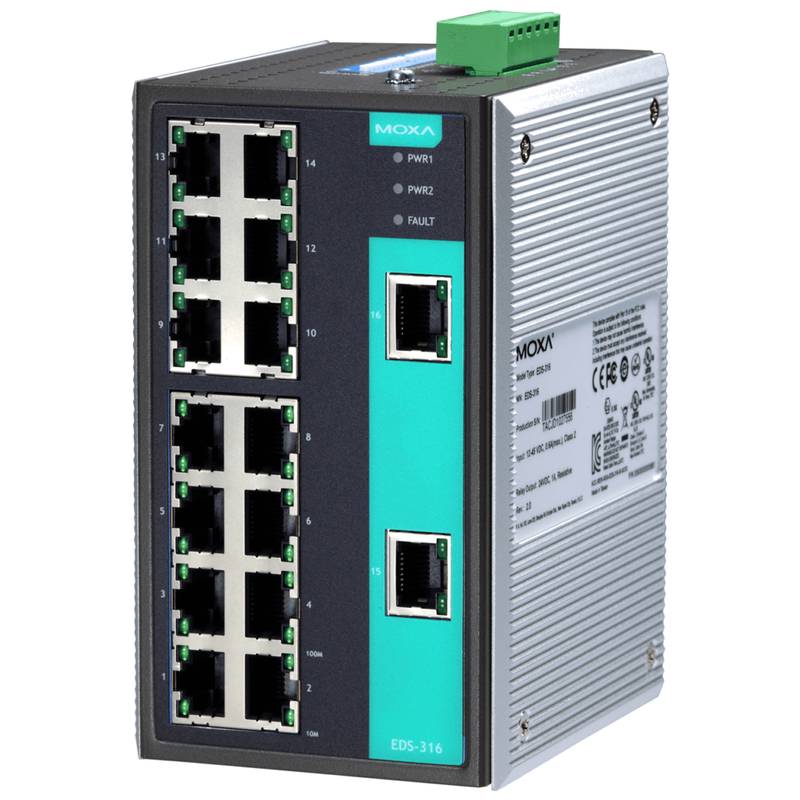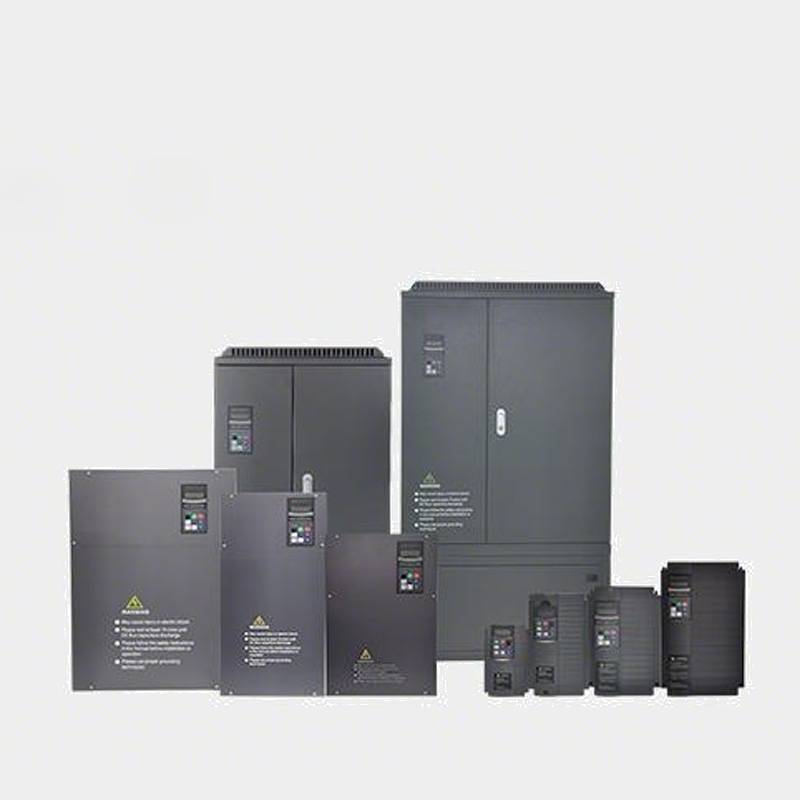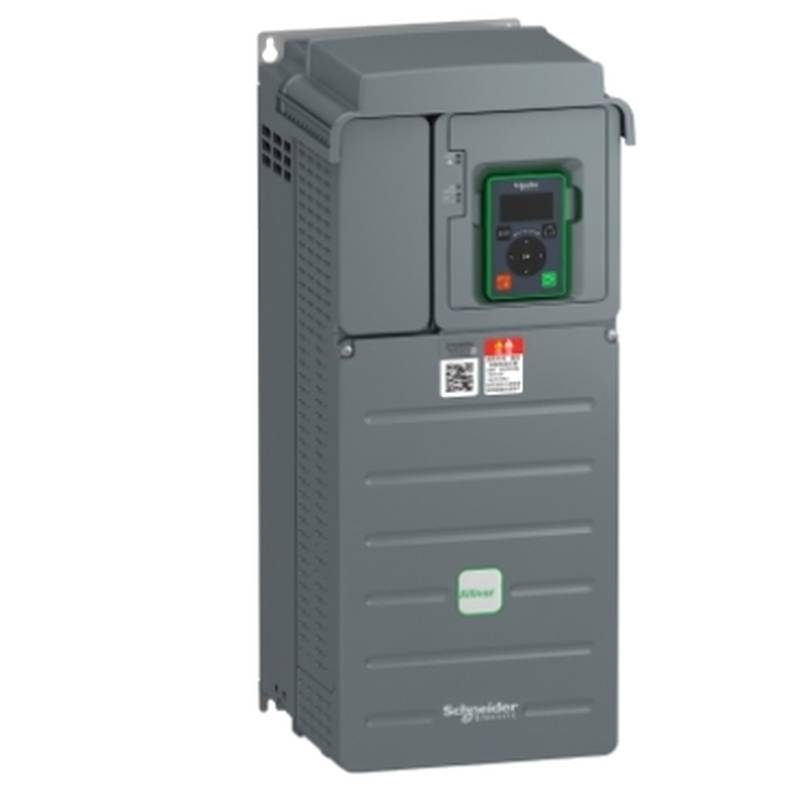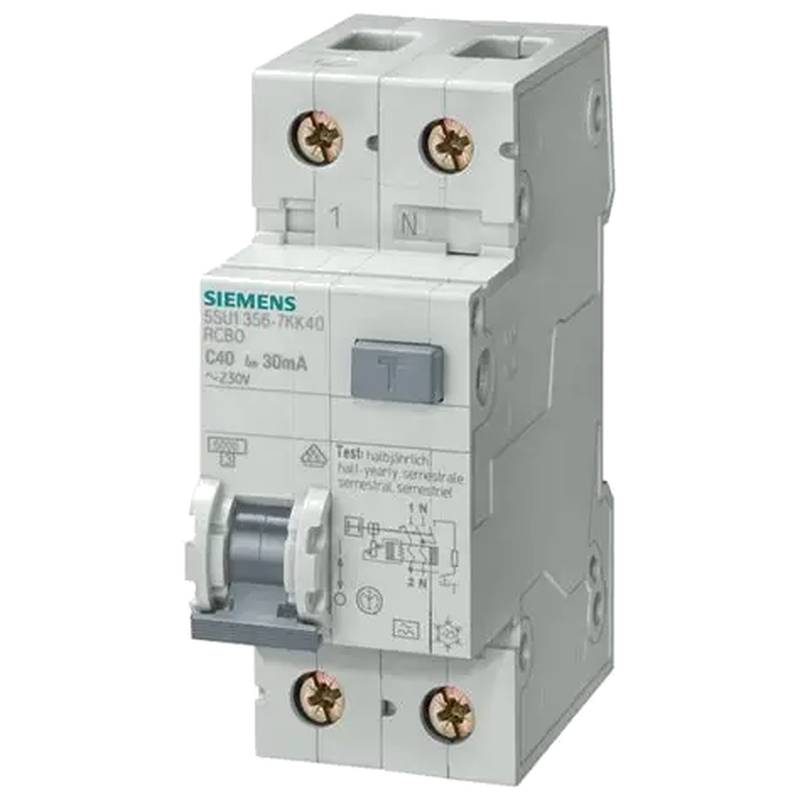
The ABB ACS880-01-077A-5 AC drive is a robust, highly configurable variable speed drive designed to deliver precise motor control and significant energy savings across a wide range of industrial applications. This 75 kW (100 HP) unit, part of ABB's comprehensive ACS880 industrial drive series, offers exceptional performance, flexibility, and ease of use, making it a preferred choice for demanding processes. Its key advantages include a compact design for efficient space utilization, advanced motor control algorithms for optimized performance, and built-in safety features ensuring operational integrity. The drive boasts a voltage rating of 400-480V and a nominal current of 152A, supporting direct-to-line connection and various control methods.
Product Specifications
| Parameter | Value |
| :-------------------- | :------------------------ |
| Model | ACS880-01-077A-5 |
| Power Rating | 75 kW / 100 HP |
| Input Voltage | 380-480 V |
| Nominal Output Current | 152 A |
| Frame Size | Not explicitly specified |
| Protection Class | IP21 (standard) |
| Control Method | DTC (Direct Torque Control) |
| Filtration | Built-in electromagnetic compatibility (EMC) filter |
| Dimensions (H x W x D) | 766 x 350 x 306 mm |
| Weight | 48 kg |
| Ambient Temperature | -25 to +50 °C (derating) |
| | |
Core Features & Market Positioning
The ACS880-01-077A-5 distinguishes itself through ABB's proprietary Direct Torque Control (DTC) technology, which provides superior motor control accuracy, dynamic performance, and stability, even under fluctuating load conditions. This advanced control capability minimizes mechanical stress on the motor and driven equipment, extending their lifespan and reducing maintenance requirements. Its adaptive programming functionality allows for customization of drive behavior to match specific process needs, enhancing operational efficiency. Positioned as a high-performance, adaptable solution, the ACS880 series competes effectively in markets demanding robust automation, energy efficiency, and straightforward integration. The drive's modular design also facilitates easier maintenance and future upgrades.
Key Application Scenarios
This AC drive finds extensive application in pump and fan control, where its precise speed regulation leads to significant energy savings by matching motor output to system demand. It is also well-suited for conveyors, mixers, extruders, and other machinery requiring robust torque control and reliability. Industries such as water and wastewater treatment, general manufacturing, food and beverage, and marine operations frequently deploy the ACS880-01-077A-5 for its durability and performance. Its ability to handle demanding environments and complex motor types makes it ideal for critical process automation where uptime and efficiency are paramount.
Practical System Integration Guidance
Integrating the ABB ACS880-01-077A-5 into existing systems is streamlined by its flexible connectivity options and intuitive interface. The drive supports various fieldbus protocols, enabling seamless communication with PLCs and SCADA systems for centralized control and monitoring. Installation requires adherence to standard electrical codes, ensuring proper grounding and ventilation for optimal thermal management. Wiring should be performed by qualified personnel, paying close attention to power and control terminal connections as detailed in the user manual. Commissioning typically involves parameter configuration via the drive's keypad or ABB's Drive Composer software, allowing for fine-tuning of motor data, control modes, and safety functions to match the specific application requirements.
Operation and Risk Mitigation
Safe operation of the ACS880-01-077A-5 is paramount. Users must familiarize themselves with the drive's safety functions, including the Safe Torque Off (STO) feature, which prevents unexpected motor starts. Proper parameterization and regular maintenance are crucial for mitigating operational risks. Common troubleshooting involves checking for fault codes displayed on the drive's panel; for instance, fault F0001 typically indicates an overcurrent condition, while F0002 might signal an overvoltage fault. Consulting the comprehensive fault code list in the product manual is essential for diagnosing and resolving issues promptly, ensuring minimal downtime. Always disconnect power before performing any internal checks or maintenance.
Scalability & Long-Term Value
The ABB ACS880-01-077A-5 is designed for scalability, allowing for future expansion and integration into more sophisticated automation architectures. Its modular hardware and software platform supports a range of optional communication and I/O modules, enabling adaptation to evolving process demands. Compatibility with ABB's broader automation ecosystem, including Programmable Logic Controllers (PLCs) and Human-Machine Interfaces (HMIs), ensures a cohesive system solution. Furthermore, the drive supports integration with Industrial Internet of Things (IIoT) platforms through its connectivity options, facilitating data acquisition for predictive maintenance, performance analysis, and energy management, thereby maximizing long-term operational value and return on investment.
Frequently Asked Questions
What is the maximum power rating for the ABB ACS880-01-077A-5?
The ABB ACS880-01-077A-5 AC drive is rated for a continuous power output of 75 kilowatts (kW), which is equivalent to 100 horsepower (HP). This capacity makes it suitable for driving medium to large industrial motors.
This power rating ensures robust performance in demanding applications such as pumps, fans, compressors, and conveyors that require substantial torque and speed control. It operates reliably within its specified voltage and current limits to deliver consistent motor performance.
Its 75 kW capability allows for efficient operation of machinery, contributing to energy savings by precisely matching motor output to the load requirements, thereby avoiding over-consumption of power.
What type of motor control does the ACS880-01-077A-5 utilize?
The ACS880-01-077A-5 employs ABB's advanced Direct Torque Control (DTC) technology as its primary motor control method. DTC offers superior dynamic performance and precise control of motor speed and torque without requiring a motor encoder.
This sophisticated control strategy enables the drive to achieve high accuracy in speed and torque regulation, even under rapidly changing load conditions, ensuring smooth and efficient operation of the driven equipment.
DTC's robustness and independence from motor feedback sensors simplify installation and reduce potential points of failure, contributing to the drive's overall reliability and ease of maintenance in various industrial environments.
What are the typical input voltage and output current specifications?
This AC drive is designed to operate with an input voltage range of 380 to 480 Volts (V), accommodating standard industrial power grids in many regions. It is crucial to ensure the input power supply is within this specified range for proper operation and longevity.
The nominal output current for the ACS880-01-077A-5 is rated at 152 Amperes (A). This current rating dictates the maximum continuous current the drive can supply to the motor, influencing the size and type of motor it can effectively control.
Understanding these parameters is vital for correct system sizing, ensuring the drive can safely and efficiently power the intended motor and withstand the operational demands of the application without exceeding its electrical limits.
How is the ACS880-01-077A-5 protected against environmental factors?
The standard protection class for the ABB ACS880-01-077A-5 is IP21, which signifies protection against solid objects larger than 12.5 mm and vertically falling water drops. This level of protection is suitable for many indoor industrial environments.
For applications requiring higher levels of protection against dust and moisture, optional enclosures or alternative drive variants might be necessary. Proper installation in a clean, dry environment is recommended to maintain the drive's integrity and operational lifespan.
The drive also incorporates built-in electromagnetic compatibility (EMC) filtering, which helps to reduce electrical noise and prevent interference with other sensitive electronic equipment in the vicinity.
What are the physical dimensions and weight of this AC drive?
The ABB ACS880-01-077A-5 measures 766 millimeters (mm) in height, 350 mm in width, and 306 mm in depth. These dimensions are important for planning installation space and ensuring adequate clearance for ventilation.
With a weight of approximately 48 kilograms (kg), proper lifting and mounting procedures should be followed during installation to ensure safety and prevent damage to the unit or personnel.
Consideration of these physical characteristics is essential during the design and engineering phase of any project to guarantee that the drive can be securely and efficiently accommodated within the control cabinet or mounting location.
What is the operational temperature range for the ACS880-01-077A-5?
The ACS880-01-077A-5 can operate within an ambient temperature range of -25 to +50 degrees Celsius (°C). However, operating at the higher end of this range will require derating of the drive's output current.
Derating means that the drive's continuous current capacity will be reduced at higher ambient temperatures to prevent overheating and ensure reliable performance. The specific derating curves are provided in the product documentation.
It is crucial to ensure adequate ventilation and consider the ambient operating temperature when sizing the drive to avoid performance issues or premature component failure, especially in demanding thermal environments.
Can the ACS880-01-077A-5 be programmed for custom applications?
Yes, the ACS880-01-077A-5 features adaptive programming capabilities, allowing users to create custom logic and control functions directly within the drive. This enhances flexibility for unique automation requirements.
This functionality enables the drive to perform tasks typically handled by separate controllers, simplifying system architecture and reducing overall costs. It supports various programming tools for development and configuration.
Users can leverage this feature to optimize processes, implement specific sequences, or create custom alarm management routines, making the drive highly adaptable to specialized industrial needs.
What are common troubleshooting issues or fault codes associated with this drive?
Common troubleshooting issues often relate to motor control, power supply, or parameter settings. For example, fault code F0001 typically indicates an overcurrent condition, meaning the motor is drawing more current than the drive is programmed to allow or can safely supply.
Another frequent fault is F0002, which signifies an overvoltage fault, occurring when the DC link voltage in the drive exceeds the permissible limits. Fault F0003 usually relates to an undervoltage condition in the DC link.
Addressing these faults requires careful analysis of the motor load, power supply quality, and drive parameters. Always refer to the official ABB ACS880 manual for a complete list of fault codes and detailed troubleshooting steps.
What safety features are integrated into the ACS880-01-077A-5?
The ACS880-01-077A-5 includes the integrated Safe Torque Off (STO) functionality as a standard safety feature. STO ensures that the drive reliably prevents the motor from generating torque, effectively stopping rotation and preventing unexpected starts.
This STO function is a key component in meeting functional safety requirements for machinery, providing a high level of protection for personnel during maintenance or emergency situations. It is typically activated via external safety signals.
Beyond STO, users can configure other safety functions, such as safe speed monitoring or emergency stop logic, by utilizing optional safety modules or programmable logic within the drive, further enhancing operational safety.
How does this AC drive contribute to energy efficiency in industrial applications?
The primary mechanism for energy efficiency with the ACS880-01-077A-5 is its ability to precisely control motor speed, reducing energy consumption significantly in applications like pumps and fans. By slowing down the motor when full speed is not required, energy savings can be substantial.
Its efficient motor control algorithms, particularly DTC, minimize energy losses within the motor itself, ensuring that more electrical energy is converted into mechanical output. This optimization reduces wasted energy and lowers operating costs.
Furthermore, by precisely matching motor output to process demand, the drive prevents energy waste associated with fixed-speed operation where motors often run at full capacity regardless of the actual need, leading to quantifiable reductions in electricity bills.














